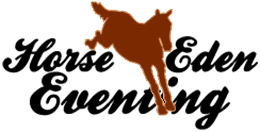It is very true that most barns & riding facilities don't care about continuing education credits - college classes, certifications, workshops.
I took the college route when I was about your age - and the 'certification' portion of it hasn't meant much to potential job opportunities.
However - the education, the networking, and the learning opportunities have been invaluable. I enjoyed the learning environment - being able to ask endless questions, talk about potential and real life scenarios, and be exposed to a lot of situations while in a classroom/teacher dynamic. I dove headfirst into all of the available opportunities including: volunteering for whatever workshop/lecture/clinic that the program was putting on, which gave me experience in running those types of programs from set up and check-in, to lectures and teaching small groups in hands-on learning; foaling out mares, collecting stallions, and training an orphan foal; working with trainers and horses from many different disciplines - reining, pleasure, saddleseat, trail riding, dressage, jumpers, Arabians, Quarter Horses, Warmbloods, Thoroughbreds, Stallions, Mares, Geldings, Foals, Seniors, Unhandled, Championship, etc.
When I first started working in the industry after college - I was very book-smart with barely any 'street smarts'. I wasn't used to the amount of work, or being solely responsible (there was always a professor to lean back on when I had questions or needed direction). But the classroom time gave me a deep look into specifics - using the knowledge gained from a paper on Colic, I was well prepared for the Summer of Colic (26 cases, 2 had to go to Surgery). The signs were classic to rare - one filly ate dinner in her stall and was totally normal, five minutes later she was turned out to the field and stood still just flipping her lip, vet called and she was fine. It would have been a different situation if she had been ignored overnight.
If you can, take a class and see what you think. Getting a working student position is a key step in real life experience. Exposure to different disciplines, breeds, and trainers will help to create a well-balanced horse-person. You can learn something from everyone - sometimes it's what to do, and sometimes it's what not to do.
It's probably a good idea to get a certification in any of the therapies you're interested in. An anatomy and physiology class will help to better understand the equine body.
If you have access to Pony Club or the British Horse Society programs, I have found that certification and levels in those organizations are recognized in the industry. Also check your state to see if there are any requirements to be a trainer - like Massachusetts has a Horse Trainer License.
If you have a favorite trainer or style of horsemanship - check to see if they offer clinics or programs. Monty Roberts has an online University and in-person certification program. Same with Clinton Anderson and Parelli.
Some disciplines and associations offer certifications - like USHJA and USEA
Check out the Certified Horsemanship Association and ARIA and PATH for Instructor Certification


